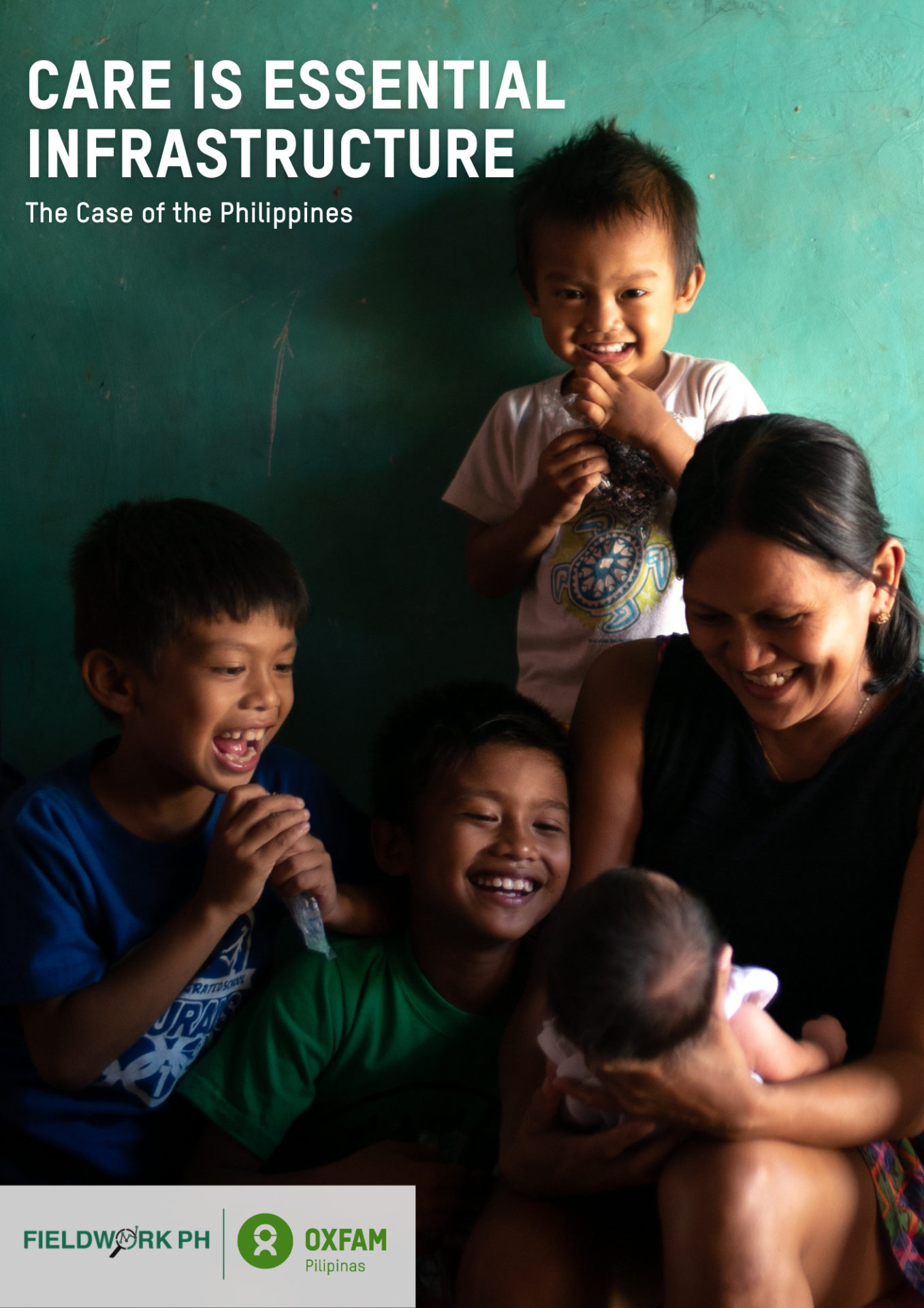- Version
- Download 3165
- File Size 8.00 KB
- File Count 1
- Create Date May 29, 2023
- Last Updated October 31, 2025
The ongoing COVID-19 pandemic has revealed the dependence of our societies on systems of care and caregiving to survive and thrive. This support system, however, has been mostly unpaid if not totally unrecognized for far too long. Its resulting negative effects have disproportionately affected women and girls around the world, especially in the Global South.
Oxfam has actively worked on context-specific evidence on care work by engaging with communities, governments, the private sector, and civil society through their Women’s Economic Empowerment and Care (WE-Care) Program since 2013. This research is part of Oxfam’s ongoing reflection and work on care that examines conversations and debates on care infrastructure and care infrastructure investments in the Philippines. The study also discusses the connection between care infrastructure investments and macro-level socioeconomic policies and civil society initiatives. Through four case stories, the research outlines examples of care infrastructure (non)investments and its influence to women’s economic empowerment.
The study defines care infrastructure as a network of structures, frameworks, and systems that enables and supports the delivery, access, and provision of care to a wide segment of the population that is necessary for survival and well-being, particularly to those who have less in life. This report puts forward a typology of care infrastructure investments in the Philippines – physical care infrastructure, care services, care policies and regulations, employment-related care provision, and norm-reorienting investments. The typology encompasses a broad range of investments that is a result of the desk review on investments and articulated demands on care infrastructures by placing emphasis on care actors: governments, civil societies, businesses, and communities.
